I’ve always been impressed with Stacey Abrams from afar, so when I got an invitation to be directly in conversation with her, I was thrilled.
In addition to her political leadership, Abrams is also a small business owner, a New York Times best-selling author, and —something fewer people know — a champion for clean energy and climate justice. Also, she loves Prince:
Video of Abrams and me singing the opening verse of Prince’s song 7. Did not have that on my Climate Week bingo card!
In 2023, Abrams joined the team at Rewiring America as senior counsel. That’s a great nonprofit dedicated to electrifying our homes, businesses, and communities. If you want to ditch fossil fuels and upgrade to electric (and save money doing it!) their website has all the top tips.
Stacey Abrams and I spoke together during Climate Week in New York City, at an event called Better Worlds Ahead, which was produced by Grist, Mother Jones, Rewiring America, and the Tishman Environment and Design Center at the New School.
I knew the conversation would be interesting – connecting the dots between clean energy, climate justice, and democracy — but I had not anticipated that it would also be utterly delightful. Enjoy!
VERY important reminder:
In the home stretch of this incredibly important election, please join me in volunteering with Environmental Voter Project and Lead Locally to get environmentalists to the polls and supporting climate candidates in local races.
For more about those organizations and their strategies, you can check out the previous episode of this podcast, where I was in conversation with both of their founders for our Vote Climate episode.
CREDITS
This episode was produced and edited by Nora Saks, and me, Ayana Elizabeth Johnson. And, as always, thanks to my chief of staff and tour producer, Jenisha Shrestha. BIG thanks to Stacey Abrams and her team, and to the event’s sponsors: Grist, Rewiring America, Mother Jones, and the Tishman Environment and Design Center at the New School.
Okay, that’s it for now. More from us next week.

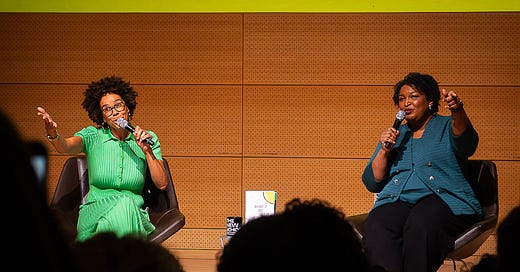



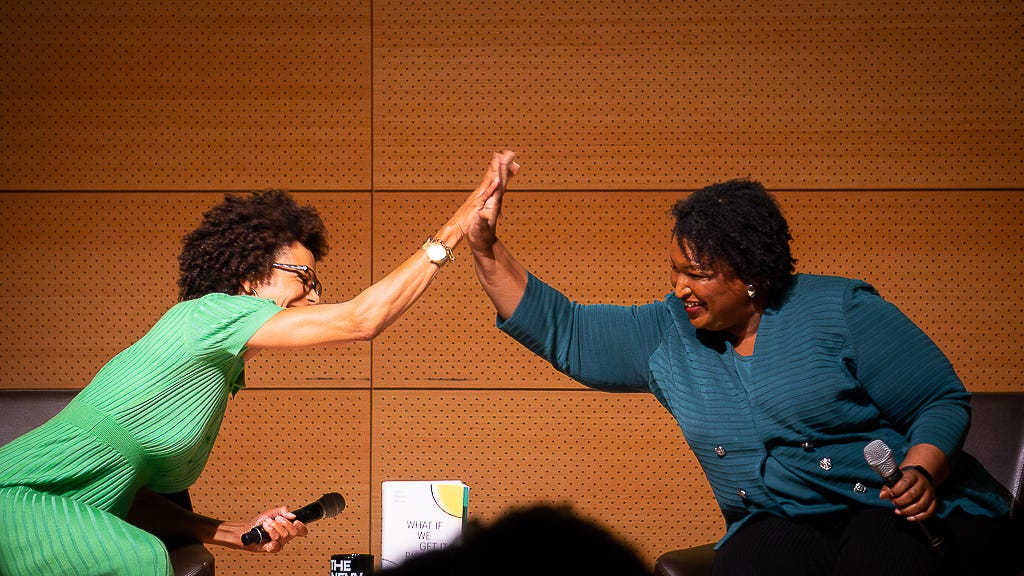


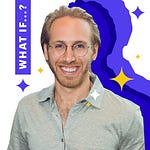
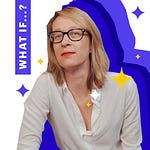
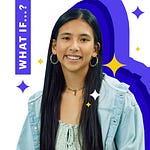
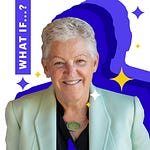
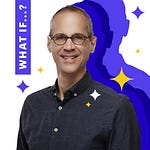

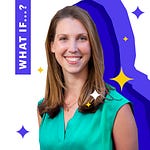
Share this post